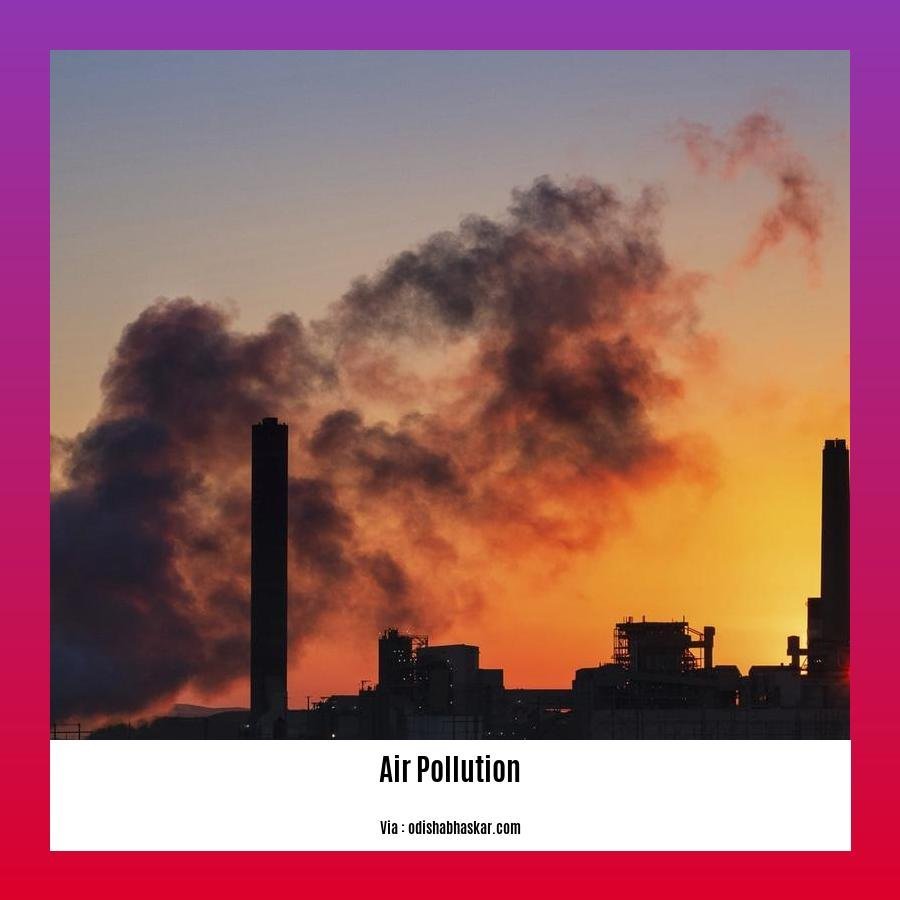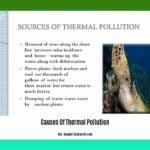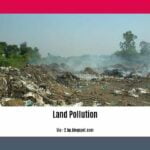Uncovering the Causes and Effects of Air Pollution: An Essential Essay for IELTS Exam Preparation
Air pollution poses a grave threat to our world, affecting not only our health but also the delicate balance of ecosystems and the stability of our climate. In this essential essay for IELTS Exam Preparation, we will explore the causes of air pollution and examine its far-reaching effects. As environmental journalists with a deep passion for social consciousness, we aim to shed light on the urgency and importance of addressing this global issue. Join us as we delve into the intricacies of air pollution and uncover the hidden factors that contribute to its devastating impact.
Key Takeaways:
- Air pollution is a significant global issue that needs to be addressed due to its detrimental effects on human health and the environment.
- Human activity, particularly the burning of fossil fuels and emissions from industries, is a major cause of air pollution.
- Restricting air travel is suggested as a potential solution to mitigate air pollution, although new solutions are also needed.
- Governments and citizens worldwide are increasingly focusing on addressing air pollution and seeking solutions.
- Environmental pollution poses a threat to the planet and human well-being, making it crucial to address this issue.
Causes and Effects of Air Pollution: An Essential Essay for IELTS Exam Preparation
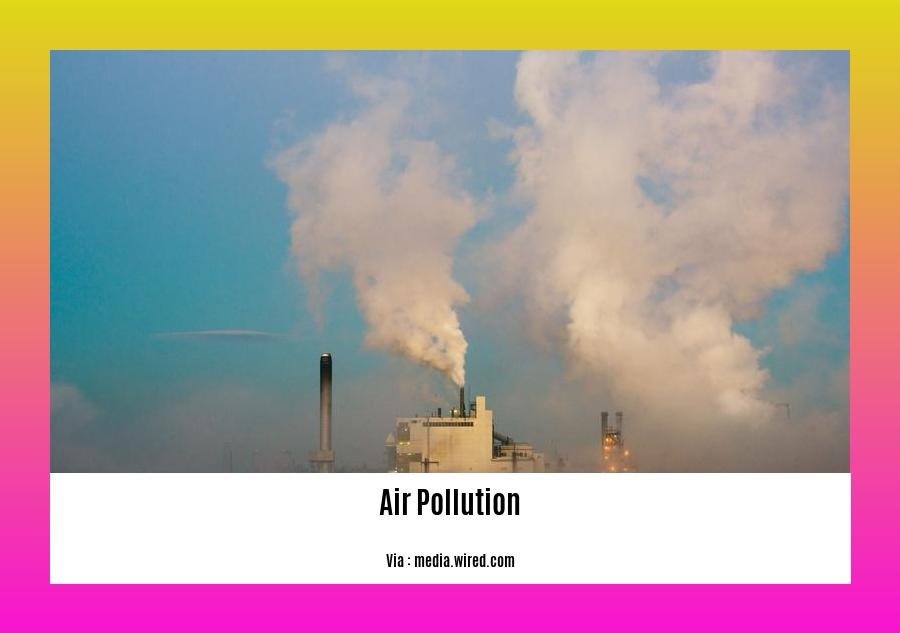
Air pollution is a global issue that poses a significant threat to human health, ecosystems, and climate change. In this article, we will delve into the causes and effects of air pollution, shedding light on this pressing environmental concern. Understanding the complexities of air pollution is essential for anyone preparing for the IELTS exam, as it showcases your knowledge and awareness of critical environmental issues.
The Causes of Air Pollution
Burning of Fossil Fuels
One of the primary contributors to air pollution is the burning of fossil fuels, such as coal, oil, and natural gas. These fuels release a high amount of pollutants, including sulfur dioxide, nitrogen oxides, and carbon dioxide, into the atmosphere. The combustion of fossil fuels is prevalent in various industries, power plants, and transportation systems, leading to a significant increase in air pollutants.
Industrial Emissions
Industries play a crucial role in fueling air pollution. Harmful substances and pollutants are released into the air during manufacturing processes, including chemical reactions, emissions from factories, and the burning of waste materials. The release of hazardous substances such as volatile organic compounds (VOCs), heavy metals, and particulate matter contributes to the overall degradation of air quality.
Vehicle Emissions
The ever-increasing number of vehicles on our roads has also become a major source of air pollution. Both gasoline and diesel-powered vehicles release pollutants such as carbon monoxide, nitrogen oxides, and particulate matter. These emissions have detrimental effects on the quality of air, especially in densely populated urban areas where traffic is high.
Agricultural Activities
Agricultural practices, although essential for food production, can also contribute to air pollution. The use of chemical fertilizers and pesticides releases harmful substances into the air, including ammonia and methane. Additionally, agricultural burning, which involves the combustion of crop residues and forests, releases smoke and pollutants into the atmosphere.
Other Factors
While the above-mentioned sources are notable causes of air pollution, it is important to recognize that there are other contributing factors as well. These include household activities like cooking with solid fuels, wildfires, construction and demolition processes, and waste management practices. Each of these activities releases pollutants that contribute to the overall air pollution levels.
The Effects of Air Pollution
Impact on Human Health
Air pollution poses significant risks to human health, with both short-term and long-term effects. Short-term exposure to pollutants can lead to respiratory issues, such as asthma, coughing, and irritation of the eyes, nose, and throat. Prolonged exposure to polluted air increases the risk of developing cardiovascular diseases, respiratory infections, lung cancer, and even premature death. Children, the elderly, and individuals with pre-existing health conditions are particularly vulnerable to the harmful effects of air pollution.
Environmental Consequences
Air pollution not only affects human health but also has far-reaching consequences for the environment. High levels of air pollution can lead to the formation of smog, which obscures visibility and degrades the quality of outdoor spaces. Pollutants can also settle on soil and bodies of water, harming plants, animals, and aquatic ecosystems. Additionally, air pollution contributes to global warming and climate change by trapping heat in the Earth’s atmosphere, leading to rising temperatures and disrupted weather patterns.
Economic Implications
The effects of air pollution extend beyond health and the environment. They also have significant economic implications. High levels of air pollution can lead to increased healthcare costs, lower productivity levels in workers, damage to crops and agricultural yields, and a decline in tourism. Furthermore, cities with poor air quality may struggle to attract businesses and investments, leading to economic stagnation.
Solutions to Address Air Pollution
Recognizing the urgency of tackling air pollution, various solutions have been proposed to mitigate its effects. These include:
Transitioning to Renewable Energy
Reducing our reliance on fossil fuels and transitioning to renewable energy sources, such as solar and wind power, can significantly reduce air pollution. Promoting the use of clean energy in industries, transportation, and households can help decrease emissions and improve air quality.
Implementing Stricter Emission Standards
Enforcing stricter emission standards for vehicles and industries is crucial in reducing pollution levels. This can be achieved through the adoption of cleaner technologies, the promotion of electric vehicles, and the implementation of efficient emission control systems.
Raising Awareness and Education
Educating individuals about the causes and effects of air pollution is essential in inspiring behavioral changes and promoting sustainable practices. By raising awareness about the harmful impacts of air pollution, we can encourage people to adopt eco-friendly habits and make conscious choices to reduce their carbon footprint.
Supporting Sustainable Urban Planning
Investing in sustainable urban planning can help mitigate air pollution in cities. Designing cities with walkable and bike-friendly infrastructure, efficient public transportation systems, and designated green spaces can reduce the reliance on cars and minimize emissions.
Encouraging International Cooperation
Addressing air pollution requires a collaborative effort at a global level. Encouraging international cooperation and sharing best practices can contribute to the development and implementation of effective policies and strategies to combat air pollution worldwide.
Conclusion
Air pollution is a pressing environmental issue that demands immediate attention. Understanding the causes and effects of air pollution is vital for individuals preparing for the IELTS exam, as it highlights your awareness and knowledge of this global concern. By adopting sustainable practices, implementing effective policies, and raising awareness, we can collectively combat air pollution and safeguard the well-being of both present and future generations. It is our shared responsibility to strive for cleaner air and a healthier planet.
Did you know that the Canadian Shield offers a wide range of recreational activities? Whether you’re into hiking, fishing, or canoeing, there’s something for everyone. Check out our website for a list of Canadian Shield recreational activities: Canadian Shield Recreational Activities.
Looking for tourist activities in the Canadian Shield? Look no further! From exploring stunning national parks to taking scenic drives, the Canadian Shield has it all. Discover the top tourist activities in the Canadian Shield here: Canadian Shield Tourist Activities.
Thermal pollution is a serious environmental concern. If you’re curious about the causes of thermal pollution, we’ve got you covered. Find out the main causes of thermal pollution in points on our website: Causes of Thermal Pollution in Points.
Effects of Air Pollution on Human Health
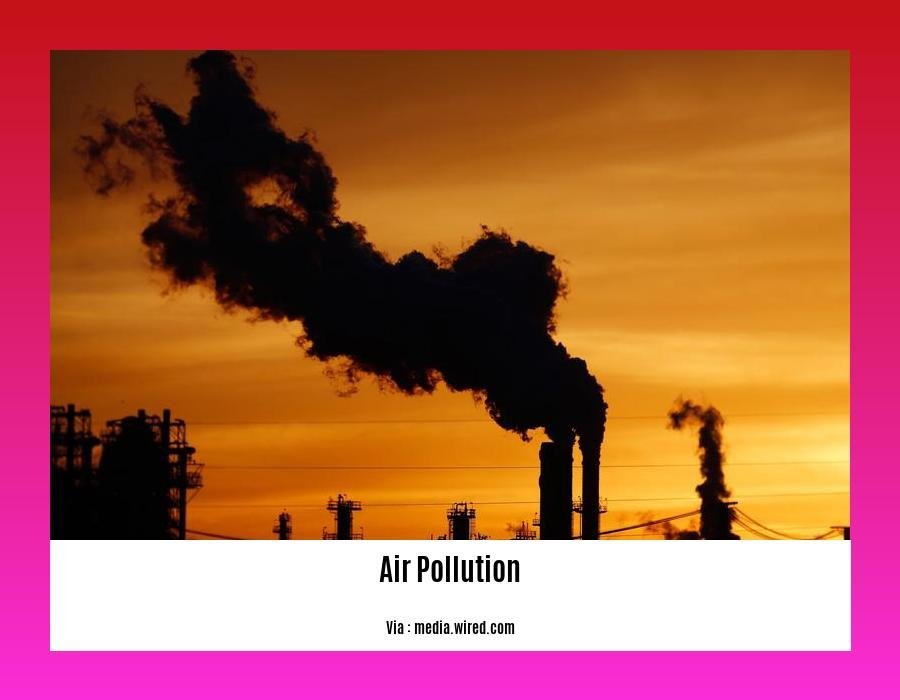
Air pollution is a pressing global issue that poses significant risks to human health. The effects of air pollution on individuals and public health are well-documented and cannot be ignored. In this article, we will explore the various ways in which air pollution adversely affects human health and why it is crucial to address this issue.
The Detrimental Impact on Respiratory Health
Air pollution has a profound impact on the respiratory system, causing a range of health problems. The inhalation of polluted air can lead to respiratory infections, asthma, chronic bronchitis, and other respiratory diseases. Fine particulate matter, such as PM2.5, can penetrate deep into the lungs and even enter the bloodstream, increasing the risk of respiratory and cardiovascular diseases.
Increased Risk of Cardiovascular Diseases
Exposure to air pollution has been linked to an increased risk of cardiovascular diseases. Pollutants such as nitrogen dioxide and ozone can lead to the narrowing of blood vessels, high blood pressure, and inflammation. This, in turn, increases the chances of heart attacks, strokes, and other cardiovascular complications.
Adverse Effects on Children’s Development
The adverse effects of air pollution are particularly detrimental to children. Their developing bodies and lungs are more vulnerable to the harmful effects of pollutants. Exposure to air pollution during early life can lead to impaired lung development, increased respiratory infections, and long-term respiratory problems. Moreover, studies have linked air pollution to cognitive deficits in children, affecting their learning and development.
Impact on Mental Health
Air pollution not only affects physical health but also has an impact on mental well-being. Growing evidence suggests that long-term exposure to polluted air may increase the risk of mental health disorders such as depression, anxiety, and cognitive decline. The link between air pollution and mental health highlights the far-reaching consequences of this issue.
Key Takeaways:
- Air pollution has detrimental effects on respiratory health, increasing the risk of respiratory infections, asthma, and chronic bronchitis.
- Exposure to air pollution is associated with an increased risk of cardiovascular diseases like heart attacks and strokes.
- Children are particularly at risk, with air pollution affecting their lung development, increasing respiratory infections, and impairing cognitive function.
- Air pollution has a negative impact on mental health, increasing the risk of depression, anxiety, and cognitive decline.
Sources:
– Effects of Air Pollution on Human Health
– Environmental and Health Impacts of Air Pollution: A Review
The effects of air pollution on human health are alarming. It is crucial that we take immediate action to mitigate air pollution and safeguard public health. By transitioning to renewable energy sources, implementing stricter emission standards, and promoting sustainable urban planning, we can make significant progress in reducing air pollution and its detrimental effects on human health. Together, let’s work towards creating a healthier and cleaner environment for ourselves and future generations.
Effects of Air Pollution on Ecosystems
Air pollution is a global issue that poses significant threats not only to human health and climate change but also to ecosystems. The effects of air pollution on ecosystems are far-reaching and have the potential to degrade environments and reduce biodiversity. Terrestrial and aquatic ecosystems are both negatively impacted by air pollution, leading to various consequences that disrupt the delicate balance of nature.
The Impact of Ground-Level Ozone on Vegetation
One of the major effects of air pollution on ecosystems is the damage caused by ground-level ozone to vegetation. Ozone reduces the process of photosynthesis in plants, slowing down their growth and rendering them more vulnerable to pests and diseases. This, in turn, affects the overall health and productivity of plant life in ecosystems. Additionally, agricultural crops and timber are also harmed by exposure to ozone, leading to economic losses and lowered quality and yield of production.
Changes in Soil Composition through Deposition
The deposition of pollutants like sulfur dioxide (SO2), nitrogen oxides (NOX), and ammonia (NH3) from air pollution can lead to significant changes in the chemical composition of soils. These pollutants can cause the acidification of soils, altering their pH levels and making them less favorable for plant growth. Such changes in soil composition can have detrimental effects on the overall health and diversity of ecosystems.
Eutrophication: A Consequence of Nitrogen Pollution
Nitrogen pollution, including nitrogen monoxide (NO), nitrogen dioxide (NO2), and ammonia (NH3), contributes to the phenomenon known as eutrophication in ecosystems. Excessive nitrogen levels in the environment can lead to an overabundance of nutrients in water bodies, causing algal blooms and disrupting the natural balance of aquatic ecosystems. This, in turn, affects the survival of aquatic organisms and can lead to a decline in biodiversity.
The Role of Fossil Fuel Burning and Industrial Emissions
Air pollution, caused primarily by the burning of fossil fuels from industrial sources, power plants, and motor vehicles, plays a significant role in the degradation of ecosystems. These emissions release harmful pollutants into the air, leading to the pollution of surrounding environments and negatively impacting the health of ecosystems.
The Vulnerability of Children and Health Implications
Children are particularly vulnerable to the effects of air pollution on ecosystems. Due to their smaller body size, they tend to have higher concentrations of polluted air in their systems, making them more susceptible to respiratory problems and other illnesses caused by air pollution. The impact on their health can have long-lasting consequences and further emphasizes the urgent need to address this issue.
In conclusion, the effects of air pollution on ecosystems are profound and diverse. Ground-level ozone damages vegetation, deposition of pollutants alters soil composition, nitrogen pollution contributes to eutrophication, and burning of fossil fuels increases the degradation of ecosystems. The vulnerability of children to air pollution further heightens the urgency for action. Understanding the detrimental consequences on ecosystems is crucial in addressing this global problem.
Key Takeaways:
– Ground-level ozone damages plants, reducing photosynthesis and making them susceptible to pests and diseases.
– Deposition of pollutants from air pollution leads to changes in soil composition, causing acidification and affecting plant growth.
– Nitrogen pollution contributes to eutrophication, disrupting aquatic ecosystems and reducing biodiversity.
– Burning of fossil fuels and industrial emissions significantly degrade ecosystems.
– Children are more vulnerable to the health effects of air pollution on ecosystems, emphasizing the need for action.
Sources:
– Impacts of air pollution on ecosystems – European Environment Agency
– Causes Of Air Pollution – Explore how Air Pollution is Caused
Uncovering the Effects of Air Pollution on Climate Change
Air pollution and climate change are intertwined issues that require a joint effort to protect public health and the environment. The connection between these two problems is crucial to understand how they impact each other.
How does air pollution contribute to climate change?
Air pollution plays a significant role in climate change by emitting greenhouse gases and particulate matter into the atmosphere. These pollutants trap heat from the sun and contribute to the greenhouse effect, leading to global warming. The most significant contributors to air pollution are burning fossil fuels, industrial emissions, vehicle exhaust, and agricultural practices.
The effects of air pollution on climate change:
-
Global temperature rise: Greenhouse gases, such as carbon dioxide and methane, released by air pollution contribute to the warming of our planet, leading to rising temperatures and climate instability.
-
Melting ice caps and rising sea levels: As temperatures rise, ice caps and glaciers melt, contributing to rising sea levels. This poses a significant threat to coastal areas and vulnerable communities worldwide.
-
Extreme weather events: Air pollution can intensify and contribute to extreme weather events like hurricanes, wildfires, and droughts. These events are becoming more frequent and severe due to climate change.
-
Disruption of ecosystems: Air pollution damages terrestrial and aquatic ecosystems, leading to the loss of biodiversity and species extinction. Pollutants like ground-level ozone harm vegetation, slow plant growth, and make plants more susceptible to pests and disease.
-
Soil acidification and eutrophication: Deposition of pollutants like sulfur dioxide, nitrogen oxides, and ammonia leads to changes in soil chemistry, causing acidification. Nitrogen pollutants contribute to eutrophication in ecosystems, disrupting natural balance.
-
Impact on agriculture and economic losses: Air pollution damages crops and timber, affecting agricultural productivity and resulting in economic losses. Ozone exposure reduces crop yields, quality, and overall agricultural production.
It’s evident that air pollution has far-reaching consequences for climate change and our environment. Addressing air pollution is crucial for mitigating its effects on climate change and preserving the health and well-being of our planet and its inhabitants.
Key Takeaways:
– Air pollution and climate change are interconnected issues that need to be addressed together.
– The main contributors to air pollution are burning fossil fuels, industrial emissions, vehicle exhaust, and agriculture.
– Air pollution contributes to global warming, melting ice caps, rising sea levels, and more frequent extreme weather events.
– It disrupts ecosystems, damages vegetation, and causes soil acidification and eutrophication.
– Air pollution has economic implications, affecting agriculture and resulting in significant losses.
Sources:
– European Environment Agency, Impacts of air pollution on ecosystems
– Naciones Unidas, Climate Change Health Impacts
– Manisalidis, I., Stavrakas, C., Stavropoulou, E., & Bezirtzoglou, E. (2020). Environmental and Health Impacts of Air Pollution: A Review. Frontiers in Public Health, 8, 14.
– Center for Science Education, The Impact of Air Pollutants on Climate Change
– The Lancet Planetary Health, Planetary health: a new science for exceptional action
FAQ
Q1: How does air pollution affect human health?
A1: Air pollution has numerous adverse effects on human health, including respiratory problems, cardiovascular diseases, lung cancer, and neurological complications. Exposure to polluted air can lead to chronic illnesses and even premature death.
Q2: What are the major causes of air pollution?
A2: There are several major causes of air pollution, including the burning of fossil fuels from industries, power plants, and motor vehicles. Other contributors include emissions from factories, agricultural activities, and the use of certain chemicals and household products.
Q3: What are the effects of air pollution on ecosystems and biodiversity?
A3: Air pollution has significant negative impacts on both terrestrial and aquatic ecosystems. It can damage vegetation, reduce photosynthesis and plant growth, and increase vulnerability to pests and diseases. The deposition of pollutants can also lead to changes in soil composition and acidification. Additionally, air pollution contributes to eutrophication in ecosystems.
Q4: How does air pollution contribute to climate change?
A4: Air pollution and climate change are interconnected issues. Certain pollutants, such as greenhouse gases like carbon dioxide (CO2) and methane (CH4), trap heat in the atmosphere, leading to global warming and climate change. The burning of fossil fuels and other human activities release these pollutants, contributing to climate change.
Q5: Why is it important to address air pollution?
A5: Addressing air pollution is crucial for the well-being of our planet and human health. It poses significant risks to public health, causing various illnesses and premature deaths. Additionally, air pollution is closely linked to climate change and has detrimental effects on ecosystems, biodiversity, and the overall health of the environment.
- Unveiling the Enigma: Mansoureh Khojasteh Bagherzadeh’s Public Appearances & Private Life in Iran - July 18, 2025
- Unveiling the Mystery: Mansoureh Khojasteh Bagherzadeh’s Husband: A Rare Glimpse into a Private Life - July 18, 2025
- Unveiling Masoud Khamenei’s Mother: Power, Influence, and Iran’s Future - July 18, 2025
